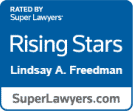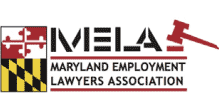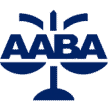How are whistleblower federal employees protected under the law?
In Maryland and Virginia, the federal government is a large-scale employer. Since the area is so close to the power hub of Washington, D.C., it is natural that there will be an extensive array of federal agencies that employ a wide swath of people. Although working in the public sector differs from working in the private sector, it is a sad fact that workers are always at risk of being mistreated.
Legal violations can happen regardless of where a person works and it is important to understand the available recourse. Being a whistleblower to report when an employer is violating the law is not easy. Often, people are reluctant to speak out due to fear of retaliation and a negative impact on their future. Before walking away without complaining about wrongdoing, it is wise to understand the law protecting whistleblowers and to have professional help.
How the No FEAR Act helps federal whistleblowers
The No FEAR Act-Notification and Federal Employee Anti-Discrimination and Retaliation Act of 2002-was signed by President George W. Bush. Under this law, a federal agency that is found to have violated employment law and retaliated against whistleblowers will be held directly accountable.
Regarding discrimination, the agency is legally bound to treat every applicant and employee the same, regardless of their race, national origin, color, religion, gender, age, disability, political affiliation and more. When there is a complaint, an Equal Employment Opportunity (EEO) counselor must be informed within 45 days of the act itself. If there was a personnel action, the 45-day time limit starts from when the action went into effect. The EEO must be informed by the complainant.
It is also crucial to recognize when adverse action has occurred. People might think that being penalized, losing vacation days, docked or losing the job entirely constitutes reprisal. Of course, these are included. But there are other ways in which adverse action can happen. Unwarranted discipline or discipline that goes beyond the boundaries of employment law, threats, intimidation, harassment, denial of benefits, demotions, blacklisting and trying to compel the employee to quit are some examples.
Comprehensive guidance and protection can help federal whistleblowers
Employees who want to report a federal violation and be a whistleblower must remember that they have rights. Still, there may be an innate fear of what might happen to them professionally and personally if they choose to speak up. Given the current climate where people can face extended retaliation and negative perceptions that follow them around based on their actions-even if they are doing the right thing-they must remember to be protected.
The federal template is different from the private sector. Public sector employers have a different process with EEO. Cases must be brought faster than they are in the private sector. Also, government agencies have internal EEO departments. This must be navigated as the case proceeds and having guidance that understands the differences is critical.
Defending decency and civil rights in the workplace may include being a whistleblower. For federal government employees who have been mistreated or know that there is wrongdoing taking place in their workplace, knowing the laws protecting them is essential. Consulting with legal professionals who are knowledgeable about state and federal employment laws and are willing to help anyone who needs it can facilitate moving forward with a case and ensuring that the laws prohibiting retaliation against whistleblowers shield them.












